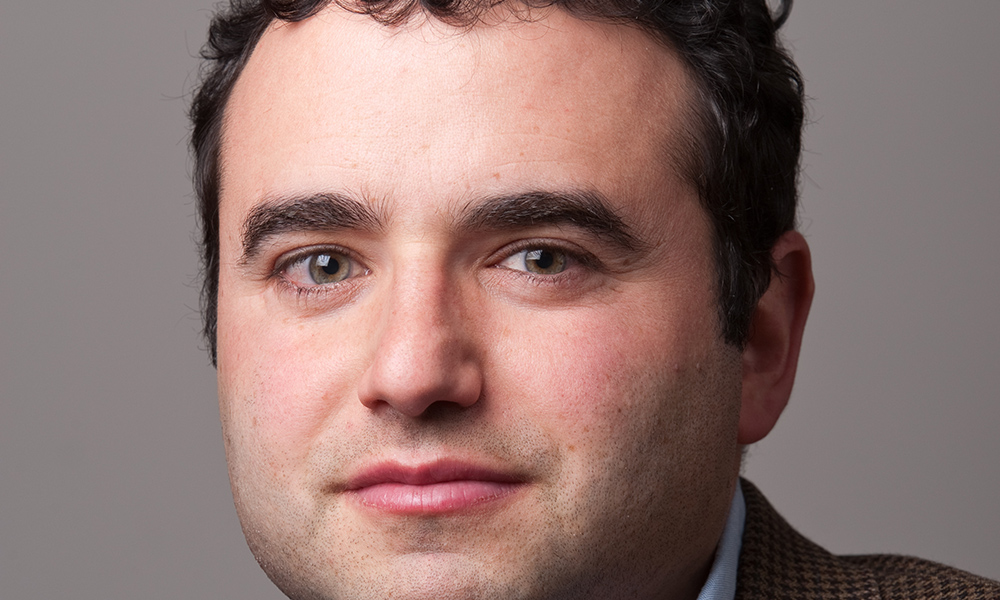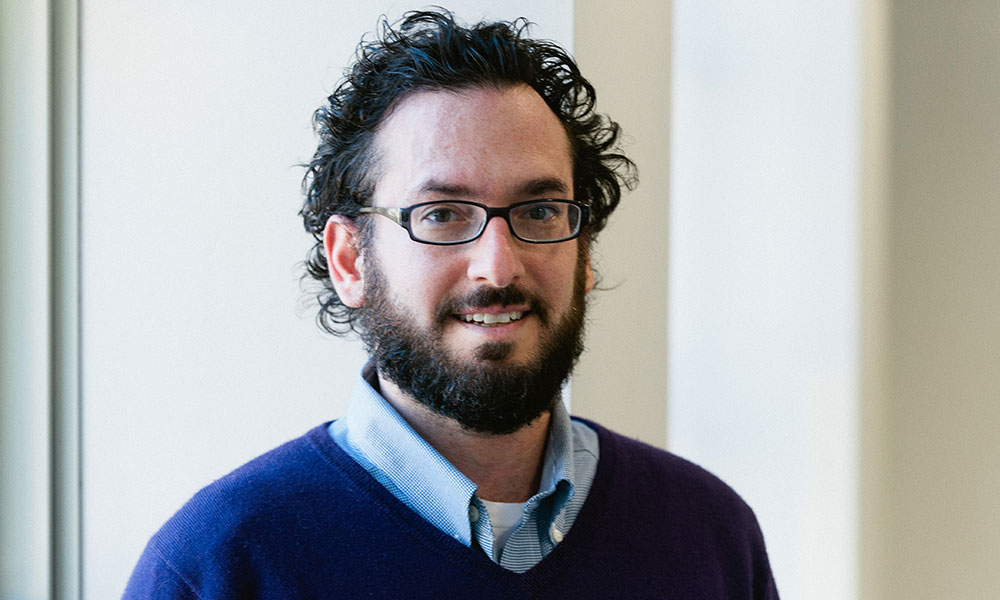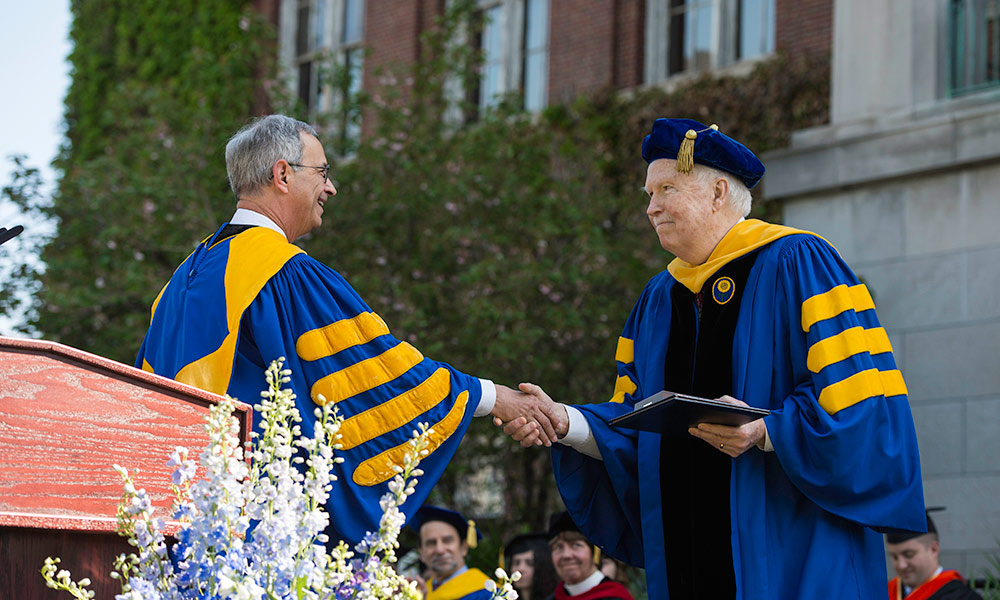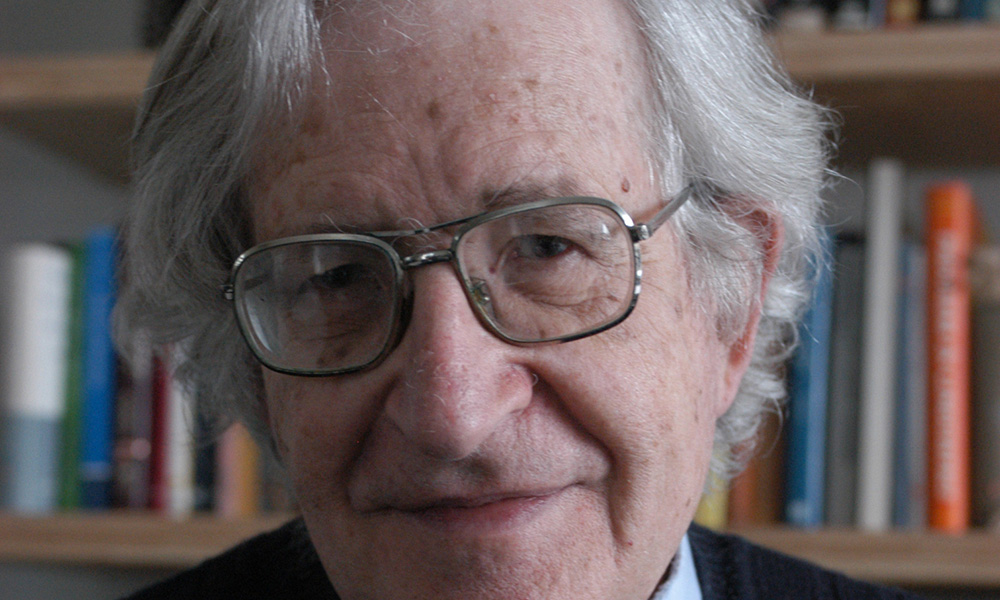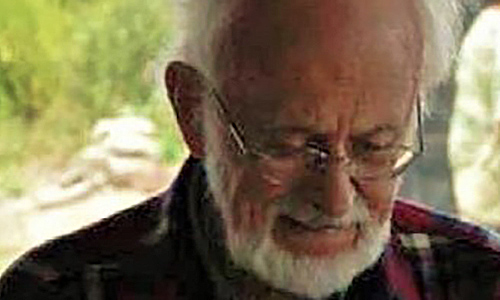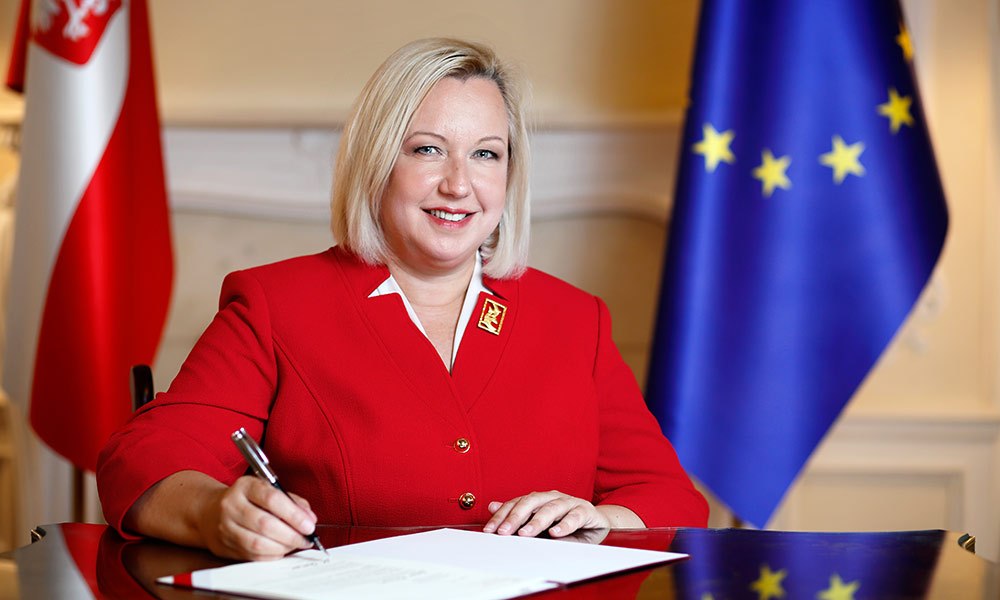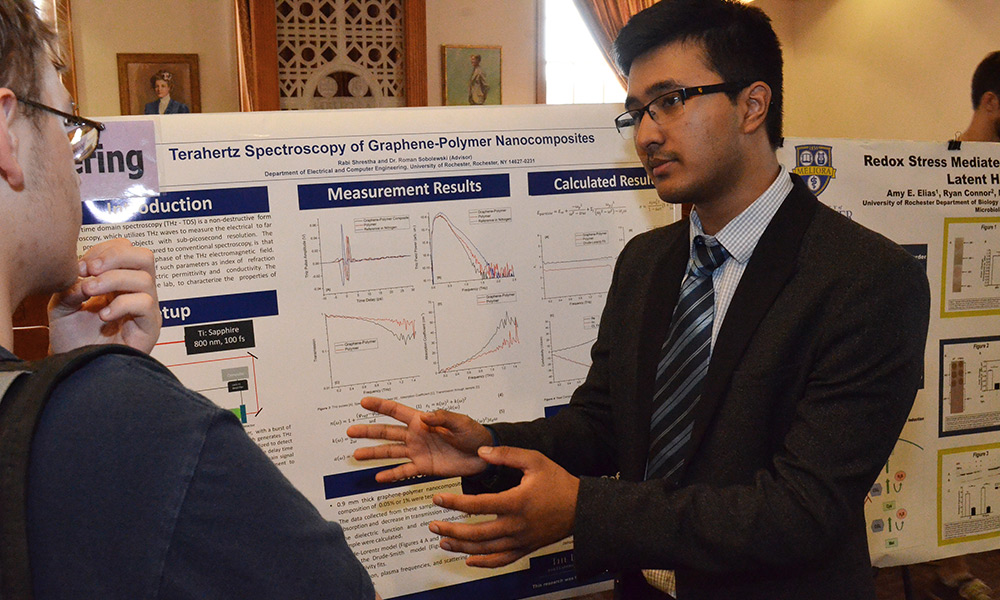
Campus & Community
Students find ‘path to their own sandbox’ at Undergraduate Research Expo
April 27, 2016
Steve Manly, director of undergraduate research, encouraged students to continue to approach their research questions with the infectious enthusiasm of "an eight-year-old in a sandbox" while honoring their work at the annual showcase.



